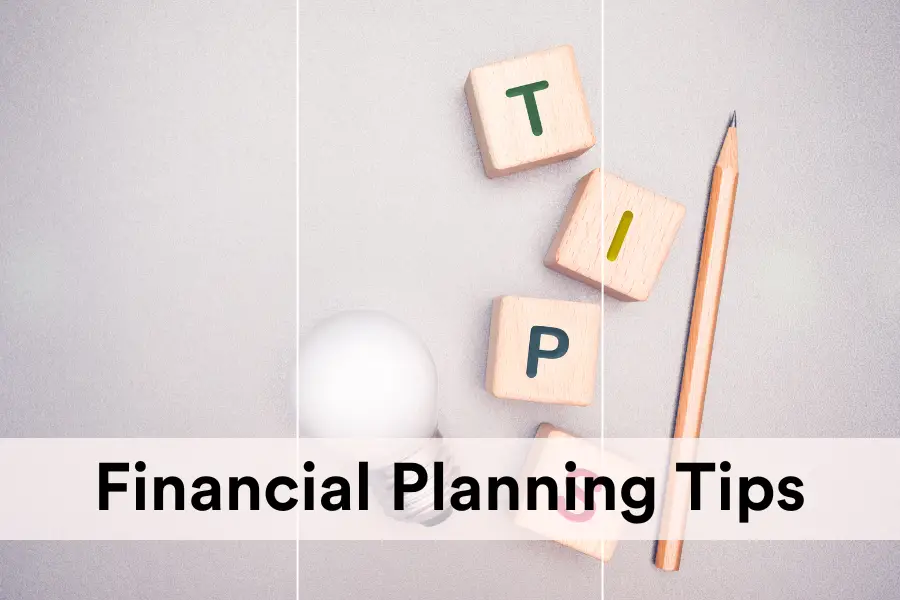Managing your money can feel overwhelming, especially for Black women who often face unique financial challenges. However, budgeting is a powerful tool that can help you take control of your finances and achieve your goals. In this article, we will explore practical budgeting strategies and financial tips specifically tailored for Black women, empowering you to master your budget and secure your financial future.
Table of Contents

Key Takeaways
- Budgeting helps you manage your money and reach your financial goals.
- Understanding your income and expenses is the first step to creating a budget.
- Building an emergency fund is essential for financial security.
- Investing, even on a budget, can help grow your wealth over time.
- Seeking financial advice from trusted sources can improve your money management skills.
Understanding the Importance of Budgeting for Black Women
The Financial Challenges Faced by Black Women
Black women often face unique financial challenges. These include lower wages compared to their white counterparts and higher rates of debt. Understanding these challenges is crucial for effective budgeting. For instance, in 2022, Black women earned only 70% of what white men made. This disparity makes budgeting even more essential for achieving financial goals.
How Budgeting Can Empower You
Budgeting is not just about tracking expenses; it’s a powerful tool for empowerment. By creating a budget, you can:
- Set clear financial goals
- Track your spending
- Identify areas to save
- Plan for future investments
This structured approach can help you take control of your finances and work towards long-term stability.
Common Misconceptions About Budgeting
Many people think budgeting is restrictive, but it can actually provide freedom. Here are some common myths:
- Budgeting means you can’t have fun.
- It’s only for people in debt.
- You need a lot of money to budget.
In reality, budgeting can help you enjoy life while managing your finances effectively.
“Budgeting is a way to live the life you want, not a restriction on your freedom.”
In conclusion, budgeting is essential for Black women to navigate financial challenges and achieve their goals. By understanding its importance, you can empower yourself to make informed financial decisions. Remember, only 50% of Black women are currently invested, highlighting the need for financial education and planning.
Creating a Realistic Budget That Works for You
Creating a budget is a key step in managing your finances effectively. A well-planned budget can help you achieve your financial goals. Here’s how to create one that fits your needs:
Determining Your Income and Expenses
- List all sources of income: Include your salary, side jobs, and any other earnings.
- Identify your expenses: Break them down into fixed (like rent) and variable (like groceries).
- Calculate your total income and expenses: This will give you a clear picture of your financial situation.
Setting Financial Goals
- Short-term goals: These could be saving for a vacation or paying off a small debt.
- Long-term goals: Think about retirement savings or buying a home.
- Make your goals specific and measurable: For example, save $200 a month for a year.
Tracking Your Spending Effectively
To stick to your budget, you need to track your spending:
- Use a budgeting app or a simple spreadsheet.
- Write down every purchase, no matter how small.
- Review your spending weekly to see where your money goes.
Adjusting Your Budget as Needed
Your budget should be flexible:
- Review it regularly: Check if you’re meeting your goals.
- Make adjustments: If you find you’re overspending in one area, cut back.
- Stay realistic: Life changes, and so should your budget.
Remember, budgeting is a journey. It may take time to find what works best for you. Stay committed, and you’ll see progress!
Saving and Investing on a Budget

Building an Emergency Fund
Creating an emergency fund is essential for financial security. Aim to save at least three to six months of living expenses. This fund can help you avoid debt during unexpected situations. Here are some steps to build your fund:
- Set a monthly savings goal: Start with a small amount and gradually increase it.
- Automate your savings: Set up automatic transfers to your savings account.
- Cut back on non-essential expenses: Identify areas where you can save, like dining out or subscriptions.
Smart Saving Strategies
To make the most of your budget, consider these smart saving strategies:
- Prioritize savings: Treat savings like a bill that must be paid each month.
- Use budgeting apps: Track your spending and savings easily.
- Look for discounts: Use coupons and shop during sales to save money.
Investing Basics for Beginners
Investing can seem daunting, but it’s a key part of building wealth. Here are some basics:
- Start early: The sooner you invest, the more time your money has to grow.
- Diversify your investments: Don’t put all your money in one place. Spread it out to reduce risk.
- Set clear goals: Know what you want to achieve with your investments.
Long-Term Financial Planning
Planning for the future is crucial. Here are some tips:
- Create a financial plan: Outline your goals and how to achieve them.
- Review your plan regularly: Adjust as your life changes.
- Educate yourself: Learn about different investment options and strategies.
Remember, investing is a journey toward financial independence. Start small, stay informed, and seek help when needed. By taking control of your finances, you can build a secure future.

Highlight
Investing is framed as a journey toward financial independence and wealth building.
Overcoming Financial Obstacles
Dealing with Debt
Managing debt can feel overwhelming, but it’s essential to tackle it head-on. Here are some steps to help you:
- List all your debts: Write down what you owe, including interest rates.
- Choose a repayment strategy: Consider methods like the snowball or avalanche approach.
- Automate payments: Set up automatic payments to avoid late fees.
Avoiding Common Spending Pitfalls
To keep your budget on track, be aware of these common traps:
- Impulse buying: Always wait 24 hours before making a non-essential purchase.
- Subscription services: Regularly review and cancel unused subscriptions.
- Lifestyle inflation: Resist the urge to increase spending as your income grows.
Finding Affordable Financial Advice
Getting help doesn’t have to break the bank. Here are some options:
- Non-profit organizations: Many offer free financial counseling.
- Community workshops: Look for local events that provide financial education.
- Online resources: Websites and forums can offer valuable tips and support.
Balancing Financial Priorities
It’s crucial to prioritize your spending. Here’s how:
- Identify needs vs. wants: Focus on essentials first.
- Set short-term and long-term goals: This helps you stay motivated.
- Review your budget regularly: Adjust as necessary to stay on track.
Remember, financial empowerment is a journey. By taking small steps, you can overcome obstacles and build a secure future. Embrace your unique path and seek support from your community, just like the inspiring stories of successful Black women entrepreneurs who have paved the way for others.
Empowering Yourself Through Financial Education

Resources for Financial Literacy
To take control of your finances, it’s important to seek out resources that can help you learn. Here are some options:
- Books on personal finance
- Online courses that cover budgeting and investing
- Financial counselors from nonprofit organizations
Learning from Financial Coaches and Mentors
Finding a mentor can be a game-changer. A financial coach can provide personalized advice and help you set achievable goals. Consider:
- Identifying someone who has successfully managed their finances.
- Reaching out for guidance and support.
- Learning from their experiences and mistakes.
The Role of Community Support
Community can play a vital role in your financial journey. Engaging with others can provide:
- Encouragement to stick to your budget.
- Shared experiences that can help you learn.
- Networking opportunities for financial growth.
Empower yourself with understanding, tools, and expert advice to combat the racial wealth gap and build for your future.
Staying Informed About Financial Trends
Keeping up with financial news is crucial. Here’s how to stay informed:
- Subscribe to financial newsletters.
- Follow financial experts on social media.
- Attend workshops or webinars on current financial topics.
By focusing on education and community, you can build a strong foundation for your financial future. Knowledge is power, and with the right tools, you can achieve your financial goals!
Balancing Lifestyle and Budgeting
Traveling on a Budget
Traveling can be a wonderful experience, but it doesn’t have to break the bank. Here are some tips to help you travel without overspending:
- Plan ahead: Look for deals on flights and accommodations.
- Use travel apps to find the best prices.
- Consider traveling during off-peak seasons for lower rates.
Enjoying Life Without Overspending
You can have fun and enjoy life while sticking to your budget. Here are some ideas:
- Explore free local events or festivals.
- Host potluck dinners with friends instead of dining out.
- Take advantage of community resources like parks and libraries.
Incorporating Self-Care into Your Budget
Self-care is important, and it can fit into your budget. Here’s how:
- Set aside a small amount each month for self-care activities.
- Look for free or low-cost options like yoga in the park.
- Prioritize activities that make you feel good without spending a lot.
Making Room for Fun and Leisure
It’s essential to have fun while managing your finances. Here are some tips:
- Create a “fun fund” in your budget for leisure activities.
- Find hobbies that are enjoyable but inexpensive, like hiking or crafting.
- Remember, budgeting doesn’t mean sacrificing joy; it means making smart choices.
Balancing your lifestyle and budgeting is about making choices that align with your values and goals. You can enjoy life while being financially responsible.
By following these tips, you can create a lifestyle that is both enjoyable and financially sound. Don’t forget to keep track of your spending and adjust your budget as needed to avoid falling into the spaving cycle.

Finding the right balance between your lifestyle and your budget can be tricky. It’s important to enjoy life while also being smart about your spending. If you’re looking for tips and tools to help you manage both, visit our website for more resources!
Final Thoughts on Budgeting for Black Women
In conclusion, mastering your budget is a powerful step towards financial freedom for Black women. By creating a budget, you can take charge of your money and work towards your dreams. Remember, budgeting isn’t just about cutting back; it’s about making your money work for you. Whether it’s paying off debts, saving for a trip, or investing in your future, every small step counts. Don’t be afraid to seek help and use resources available to you. With the right tools and mindset, you can achieve your financial goals and live the life you desire.
Frequently Asked Questions
What is the first step to start budgeting?
To begin budgeting, figure out your monthly income. This includes your salary and any extra money you might have.
How can I keep track of my spending?
You can track your spending by writing it down in a notebook, using a budgeting app, or making a spreadsheet.
What should I do if I have unexpected expenses?
If you face unexpected expenses, adjust your budget by cutting back on non-essential items or using savings.
How do I set financial goals?
To set financial goals, think about what you want to achieve, like saving for a trip or paying off debt, and write them down.
What if I find it hard to stick to my budget?
If sticking to your budget is tough, try to review it regularly and make changes if necessary. Stay focused on your goals!
How can I save money while still enjoying life?
You can still enjoy life by finding budget-friendly activities, like free events or cooking at home instead of dining out.

